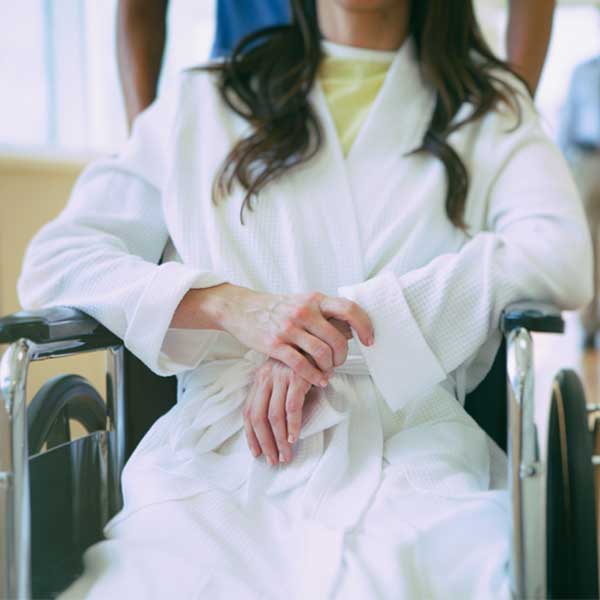
Contributed by Haley Burress
Here’s the good news: your loved one is ready to be discharged from the hospital. No more uncomfortable beds or uncertainty. Here’s the bad news: your loved one is ready to be discharged from the hospital. Before you can head back to the comforts of home, you have plenty to do before that hospital discharge. Being prepared can make or break your homecoming, so we are here to help by giving you the three steps that you need to have taken care of before you jump in the car with your loved one. Trust us – these are some of the best ways to reduce stress and get you both home safe and sound.
1. Know the Next Medical Steps
If your loved one is ready for a hospital discharge, both of you should be undergoing some type of patient and caregiver education. Make sure you are familiar with the hospital discharge instructions, including any prescriptions that need to be filled and follow up appointments.
The key here is to be sure that you are organized. If your nurse or hospital discharge planner rolls in early in the morning when you and your loved one are still bleary eyed from a restless night, ask them to return at a later time when you are ready to hear instructions. Bring along your calendar to schedule follow up appointments and a notebook to include prescriptions to fill or other post-discharge instructions.
If you are unclear or confused about any medical follow up, ask questions. If no one is around to answer your questions, write them down so that you can ask the nurse or doctor when available. If you feel unequipped to handle the follow up medical steps, or the care required at home, be honest and tell your discharge planner. She might point you towards some temporary in home care or other medical resources that will help bridge the gap until the care at home becomes less intensive.
2. Ready the Environment
When you are faced with a hospital discharge, you need to do a lot more to your home than fluff the pillows. Armed with the medical follow up care requirements, be sure that your home is ready to go before your loved one arrives there. Take a half day or more to leave the hospital and do a walk through of your home. Take a look at it through the eyes of your loved one’s new needs.
Do the rugs in the bathroom pose a trip hazard? Will your loved one be able to walk up the stairs to the bedroom? Are the cabinets full of food that your loved one can tolerate? Do you have the durable medical equipment (DME) that your loved one will need and that is recommended by the hospital staff?
Install grab bars, move the bed into the downstairs living room, and stock the fridge with healthy foods that suit your loved one’s new diet. Remove rugs and put in slip-free rugs in the shower. If you have all of these things done before your loved one arrives at home, you will feel more prepared and your loved one will feel safe.
3. Rally the troops
If you are ready for hospital discharge, you must let your support system know ahead of time. Use your Lotsa Helping Hands community Announcements to keep friends and family aware of when your loved one is coming home and what you need to make the transition successful.
Ask for your community to prepare meals for your home or to come over for a few hours each day so that you can get out of the house. Also, post your requested visiting hours and schedule so that your family and friends can plan appropriately. Keeping your Lotsa Helping Hands community informed and keeping the conversation going about what you need will save your sanity once you get home.
Hospital discharge is exciting, but it can also happen very quickly. Don’t let yourself get overwhelmed by looking at the big picture all at once; instead, focus on our three steps – one at a time – and get your loved one home safely. Good luck and welcome home!

